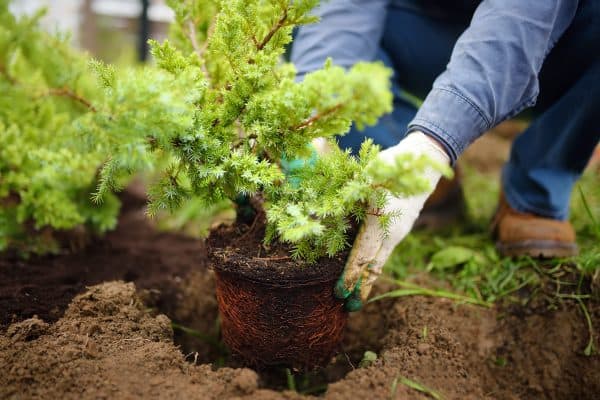If you're allergic to bees but you always love to take a stroll in your garden, you've probably wondered what kind of plants you can use without attracting these pollinators. We've researched this topic and in this post, we'll be sharing with you some of the best ground covers that won't attract bees to your yard.
Bees are generally attracted to plants with blooms, so ground covers with flowers might now be the best choice for your garden. Popular choices for non-bee attracting ground covers are Creeping Juniper, Ferns, Lady's Mantle, Moss, or Mondo Grass.
There are a lot of choices for ground covers and learning about which of these plants are not attractive to bees can be a little overwhelming. Keep reading because we'll be discussing more of these plants, as well as other ways to repel bees from your yard naturally.
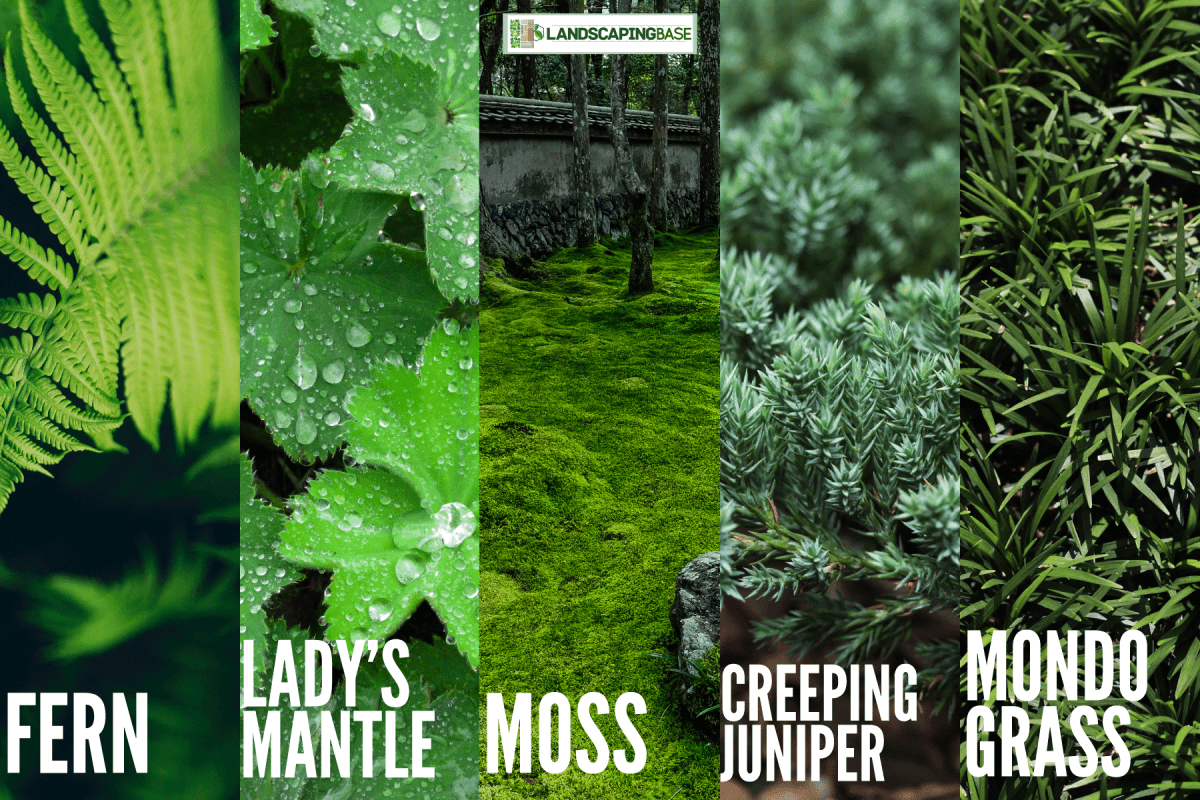
Best Ground Cover That Does Not Attract Bees
Bees are important to our environment, but unfortunately, they can be dangerous for some people. Bee stings can be life-threatening to those with allergies and it's always best to keep bees out of the garden as much as possible.
While we want these bees out of the property as much as possible, we also don't want to get rid of them by unnatural means. Bees are already endangered and without these pollinators, our environment will be imbalanced. The best way to get them out of your property is not to attract them.
Ground covers are rapidly growing plants that rapidly grow over an area of ground. Most gardeners plant ground covers to prevent weeds from growing and to keep the soil from eroding unnaturally. There are a lot of ground cover plants and here are some examples that aren't attractive to bees.
Creeping Juniper
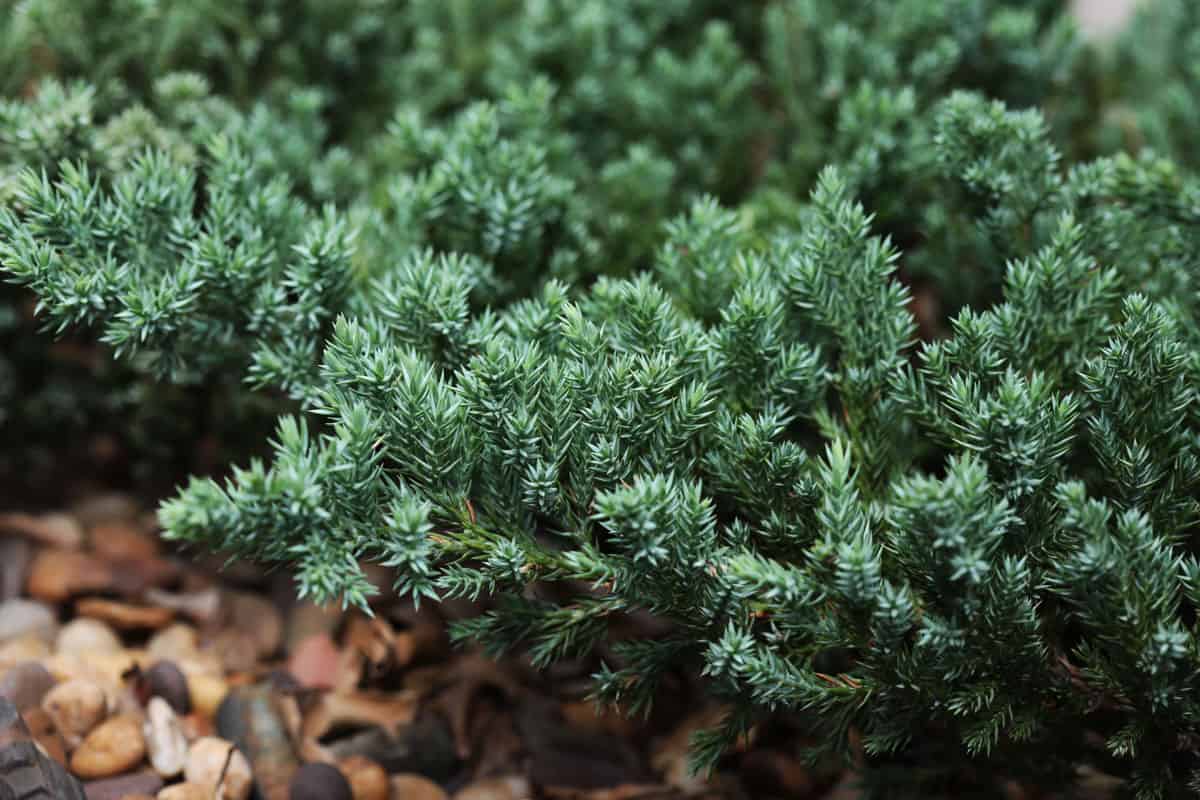
Creeping junipers are low-growing, evergreen shrubs that cover the ground in dense, prickly green leaves. This ground cover is also drought-tolerant, and can generally grow well in poor soil and sloped areas. Tough-as-nails, these creeping junipers are great for any kind of area you need to cover.
For those looking for ground covers that aren't attractive to bees, creeping junipers should be one of the top choices you should consider for your garden. These evergreens do not have blooms, so you don't have to worry about bees lingering in your yard.
Ferns
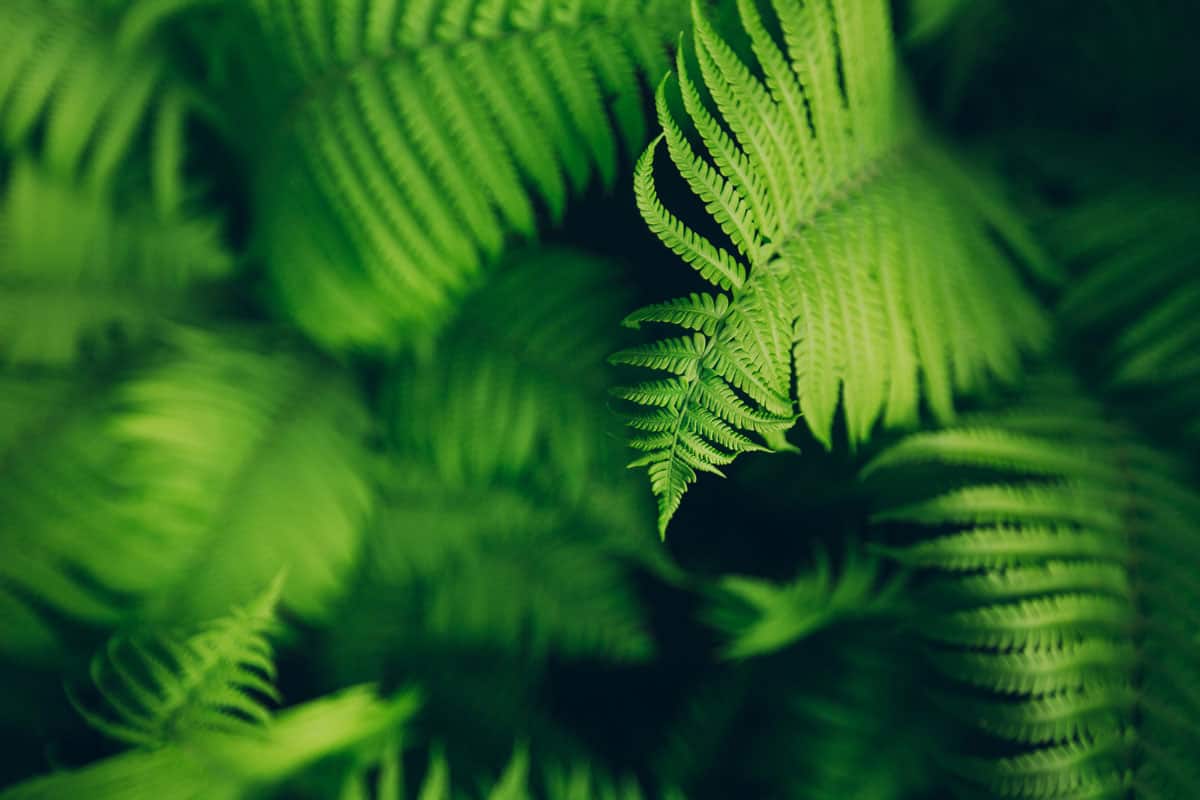
There are many varieties and sizes. Ferns are low-maintenance ground covers that can be planted in groups, and they'll cover the bare area pretty quickly. Ferns enjoy moist grounds and are pretty drought-tolerant, and they prefer areas with full shade.
Ferns do not bloom, so this is another great choice for those seeking plants that won't attract bees. One of the problems with ferns however is that they spread via rhizomes, so it can be a little hard to manage if you find them in areas you weren't planning to find ferns growing.
Lady's Mantle
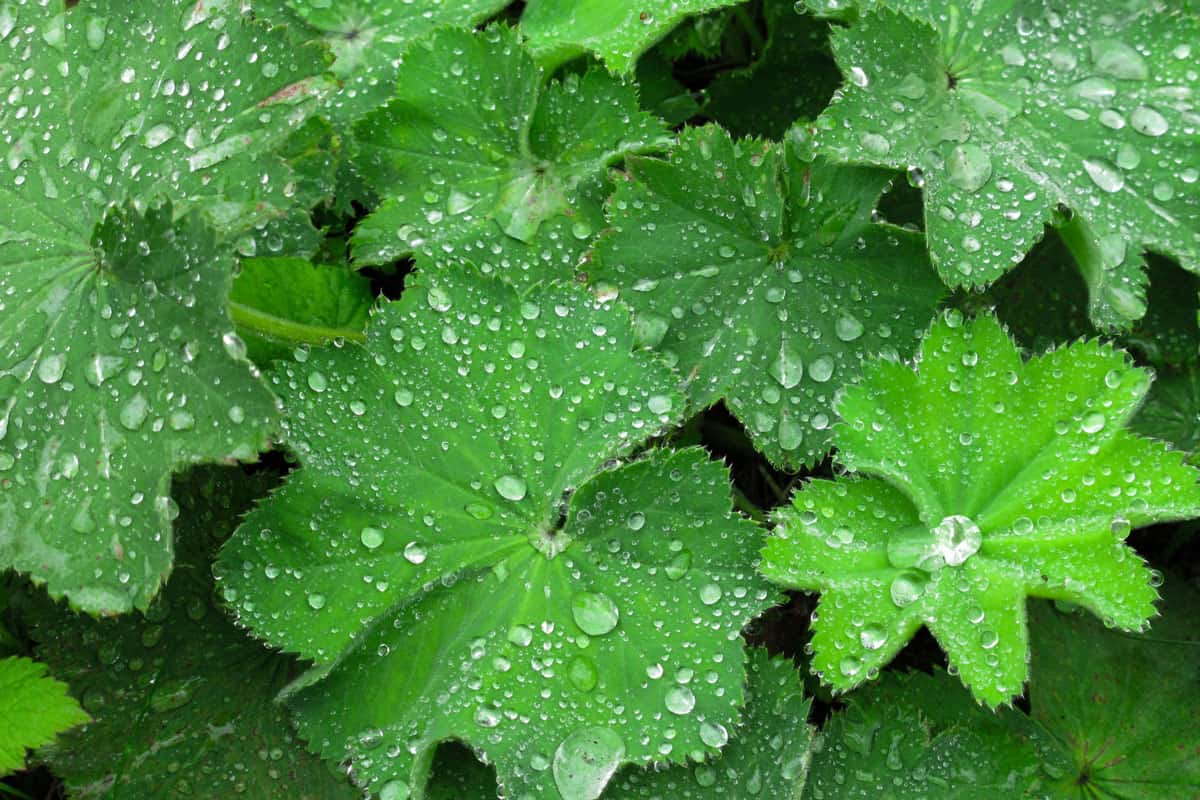
A clumping perennial that grows well in both sunny and shady areas, Lady's Mantle is a great choice of ground cover because they look good all season. A plant that is covered in circular, scallop-shaped leaves, Lady's Mantle gives off a country charm to whatever place it is planted in.
Technically speaking, Lady's Mantle is a blooming ground cover. However, the plant's yellow-green-colored flowers are not very attractive to bees due to their size. There are also occasions when the plant does not flower, so it really isn't an issue if you don't want bees in your yard.
Moss
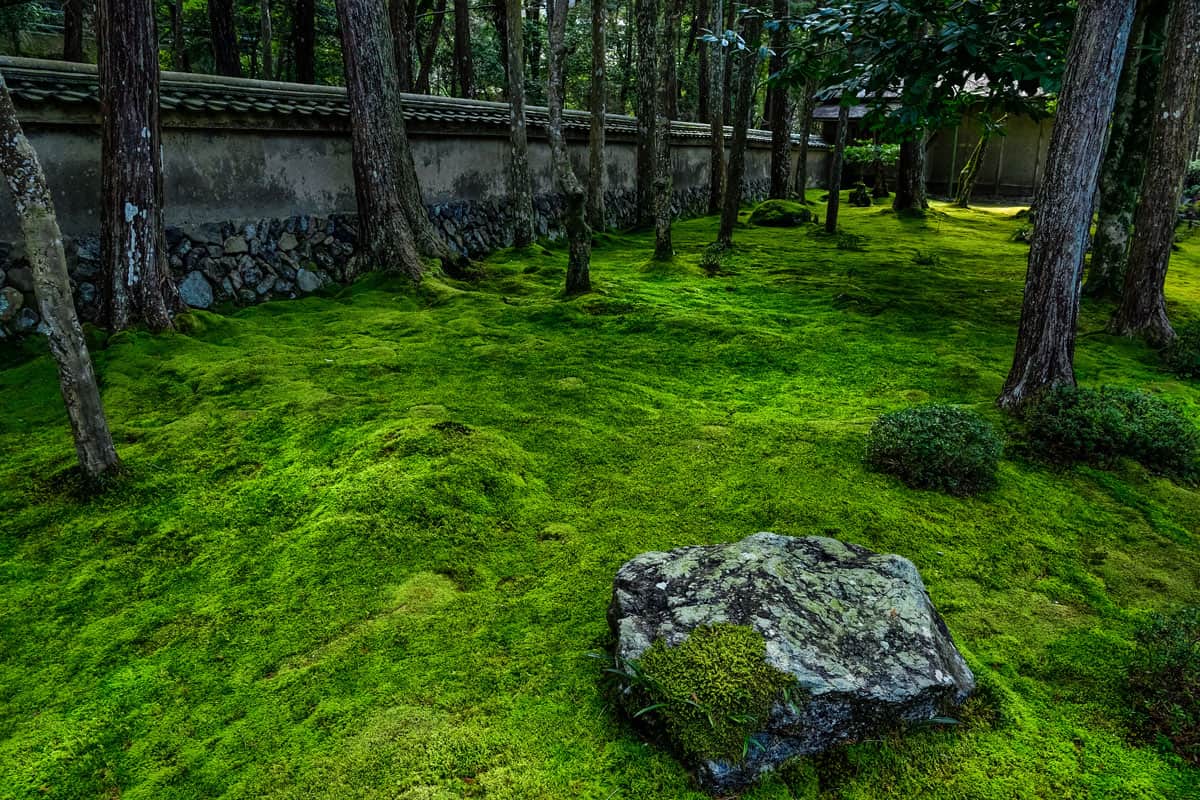
Another great option for gardens, moss as ground cover will surely give your area that forest feel. Moss grows fast and it covers the ground completely in a dense carpet that can withstand pretty light foot traffic. This ground cover is also low maintenance, which is great for many gardens.
Of course, one of the benefits of using moss as ground cover is its ability to grow in poor soil and its resistance to pests. They are also unattractive to bees, which is great if you have people in your household that can be allergic to these insects.
Mondo Grass
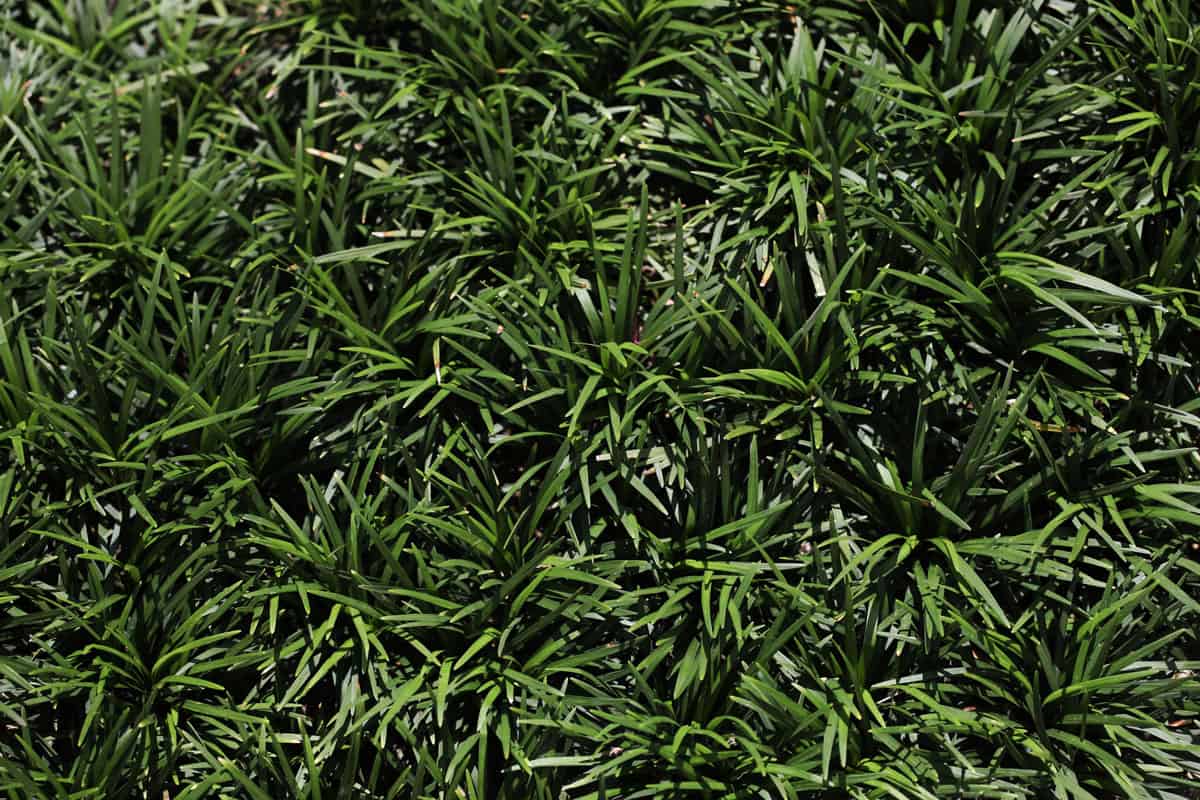
Mondo grass is another plant that you can consider using as ground cover. This evergreen perennial grows in clumps and can be slow-growing compared to other ground covers. However, once they are fully established, they require very minimal care.
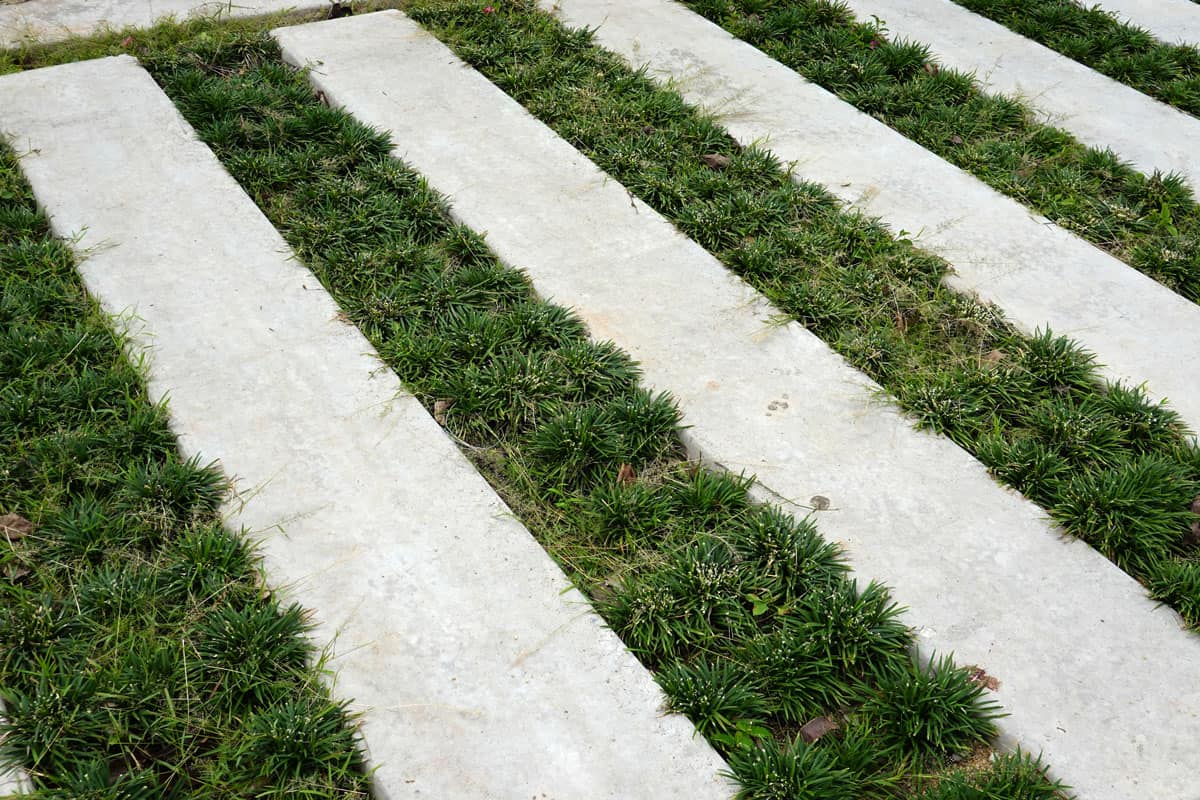
Similar to other ground covers, Mondo grass also blooms but the flowers are quite small for them to attract bees. The blooms are typically white and small, which isn't something that bees quite like.
Why Are Bees Suddenly In My Yard?
Bees are attracted to many things. Naturally, one of the most attractive places in your home is probably your garden and yard, especially if it is filled with pollen-rich flowers and sweet scents. One way to prevent this is by keeping scented flowers to a minimum in your home.
Oftentimes, bee swarming occurs because they are establishing a new colony, typically due to overcrowding. If you have plants that are natural pollen attractors, you might also find bees in your yard just before winter because they are stocking up.
If you find that there are quite a lot of bees in your yard, you might also want to check if they have established a hive nearby. This is important if you or anyone living in your home who might be allergic to bee stings. If so, call a beekeeper or a local bee conservator to help you remove the hive in your yard.
How Do I Repel Bees From My Yard Naturally?
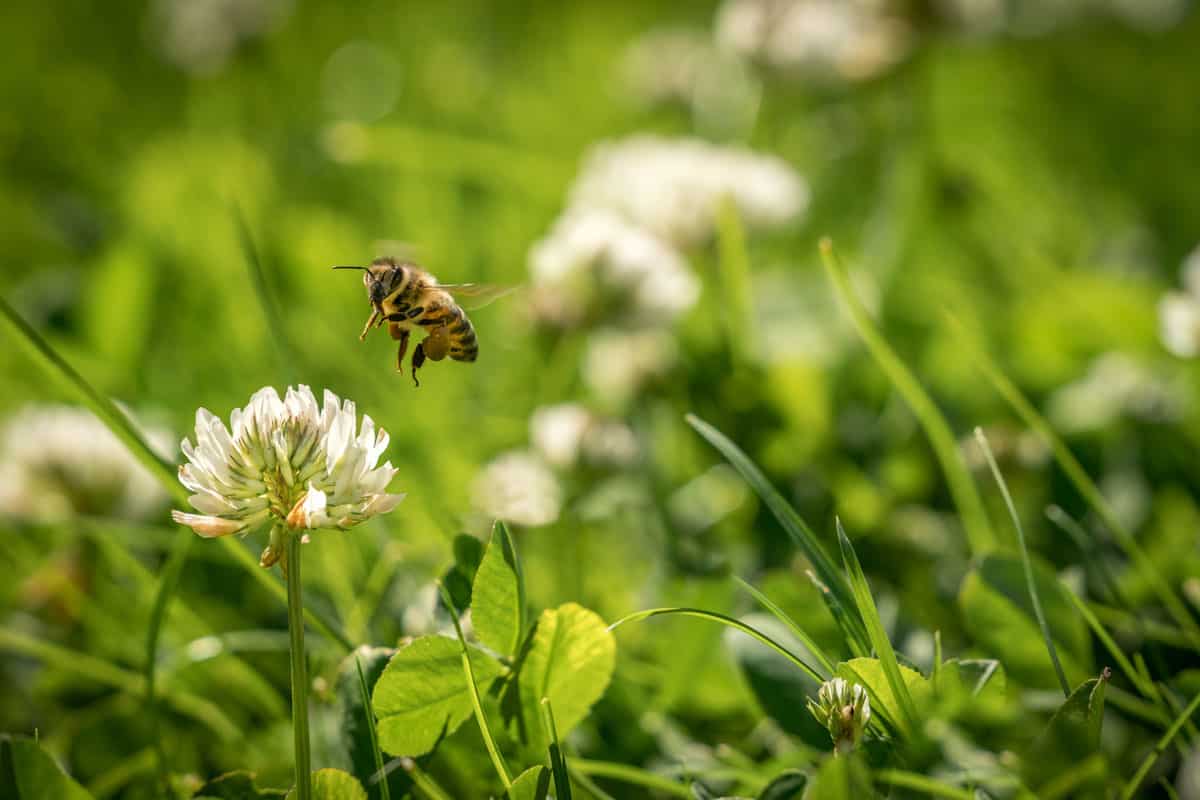
Bees are great, not until they end up stinging you. If you're one of the few who are allergic to bees with life-threatening reactions, being around these pollinators can be a little worrisome. There are a number of ways in which you can repel them naturally, including adding some plants to your yard.
Use essential oils
Bees are also dependent on scents, which is why they are attracted to certain flowers. Make use of this sensitivity to scents by using essential oils that bees aren't very keen on. Scents from essential oils like lemongrass, peppermint, tea tree, citrus, citronella, mint, and eucalyptus are particularly bee deterrents.
Simply dab the oil on cotton balls and rags, leaving them around the area where people usually stay to deter bees from coming close. Use pure and natural essential oils to keep the scents in their raw form.
Get this lemongrass essential oil on Amazon.
Spray some soap and water
Bees are quite susceptible to some chemicals and they do not like soap as it can kill them. A good deterrent for bees would be to spray some mild soapy water in your plants that they can't seem to get enough of.
For this method, use a natural soap like castile soap on your plants. Mix a few teaspoons with a few quarts of water and gently spray it on your plants. Castile soap is organic and it is safe to spray on most plants.
Check out this castile soap on Amazon.
Repel bees with garlic
Bees also hate the smell of garlic. If you are in a yard that typically has bees everywhere, it would be a good idea to harness the power of garlic. You can sprinkle garlic powder around specific areas of your garden where you'd like to deter bees from approaching.
An alternative would be to make a quick garlic tea solution that you can spray on your plants. Boil an entire garlic bulb in 500 mL of water for about 10 minutes. Let the solution cool and remove the garlic bulb before transferring the solution to a spray bottle. Spray them on your plants (but never on the bee themselves!)
Work with vinegar
Using vinegar to repel bees is another trick that can help you keep them out of your garden. Aside from keeping bees away from you, vinegar is also great for killing weeds in your yard. Fill small containers with full-strength white vinegar and place them around different areas in your garden to keep them bee-free.
Get white vinegar from Amazon.
Wrapping Up
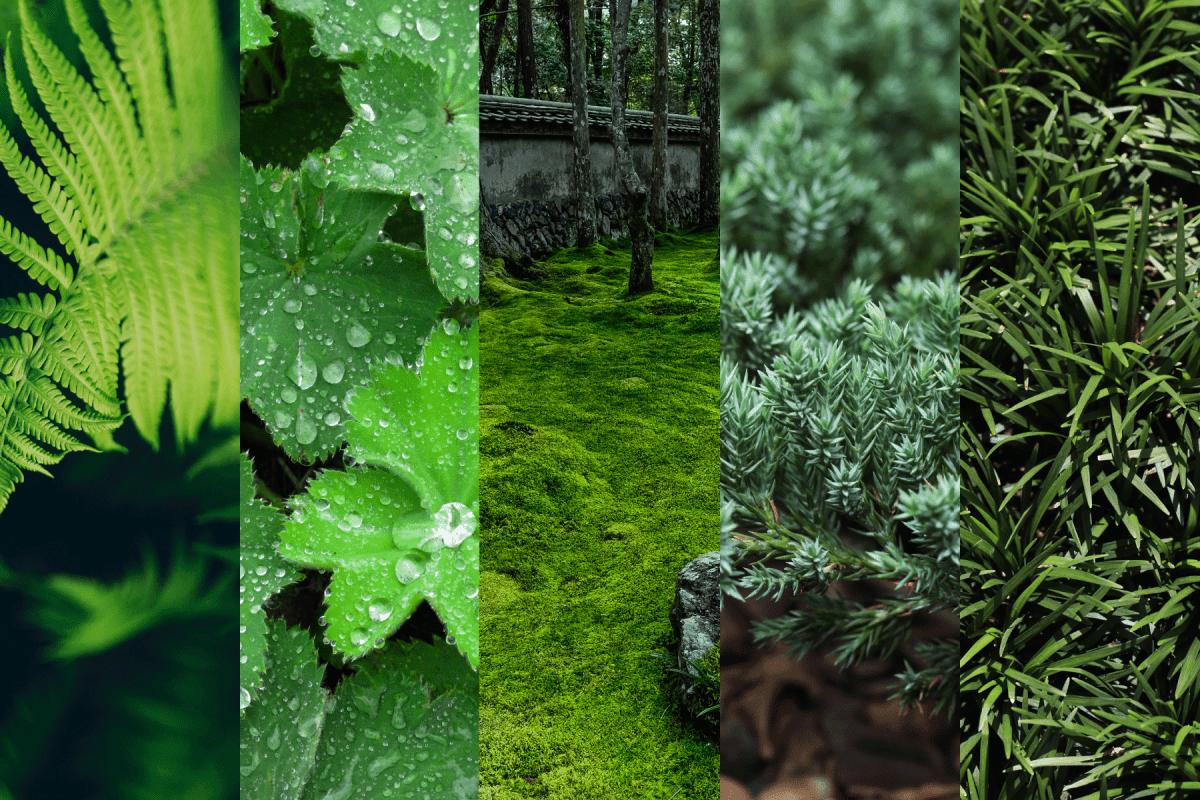
Keeping your garden safe from possibly life-threatening stings is important, which is why the plants in your yard should be curated well, even the ground covers. Keep things safe by sticking to non-flowering plants. Place them with bee-repellant plants, and you'll definitely have a safe yard to hang out in.




![man replanting herb with yellow flowers for use in landscaping. 15 Perennials That Absorb Water [Incredible Choices For Foundation Landscaping]](https://landscapingbase.com/wp-content/uploads/2022/09/man-replanting-herb-with-yellow-flowers.-15-Perennials-That-Absorb-Water-600x400.png)
![Big custom made luxury house with nicely trimmed and landscaped front yard, South Facing Front Yard Landscaping Ideas [17 Ideas To Increase Your Curb Appeal]](https://landscapingbase.com/wp-content/uploads/2022/09/BIGCUS1-600x400.jpg)
